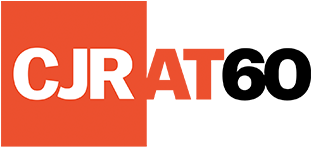The Xerox Corporation ventured into sponsorship of print journalism this year with an investment of $170,000 in a magazine “special”—$55,000 in fee and expenses to Harrison E. Salisbury for a twenty-three-page article, “Travels Through America,” and $115,000 in advertising to Esquire. Although Xerox, Esquire, and the writer all professed satisfaction with the arrangement, a distant voice was raised in the letter columns of The Ellsworth (Maine) American. The letter might have been little noted had its author not been E.B. White of North Brooklin, essayist and senior statesman of American letters. His protest led to an invitation to him from W.B. Jones, Xerox’s director of communications operations, to present the argument more fully. This White did. (This text—“Letter to W.B. Jones, January 30, 1976,” from the Letters of E.B. White, Revised Edition by E.B. White, copyright 2006 by White Literary LLC—is presented with the permission of HarperCollins Publishers.)
The press in our free country is reliable and useful not because of its good character but because of its great diversity. As long as there are many owners, each pursuing his own brand of truth, we the people have the opportunity to arrive at the truth and to dwell in the light. The multiplicity of ownership is crucial. It’s only when there are few owners, or, as in a government–controlled press, one owner, that the truth becomes elusive and the light fails. For a citizen in our free society, it is an enormous privilege and a wonderful protection to have access to hundreds of periodicals, each peddling its own belief. There is safety in numbers: the papers expose each other’s follies and peccadillos, correct each other’s mistakes, and cancel out each other’s biases. The reader is free to range around in the whole editorial bouillabaisse and explore it for the one clam that matters—the truth.
When a large corporation or a rich individual underwrites an article in a magazine, the picture changes: the ownership of that magazine has been diminished, the outline of the magazine has been blurred. In the case of the Salisbury piece, it was as though Esquire had gone on relief, was accepting its first welfare payment, and was not its own man any more. Whenever money changes hands, something goes along with it—an intangible something that varies with the circumstances. It would be hard to resist the suspicion that Esquire feels indebted to Xerox, that Mr. Salisbury feels indebted to both, and that the ownership, or sovereignty, of Esquire has been nibbled all around the edges.
Sponsorship in the press is an invitation to corruption and abuse. The temptations are great, and there is an opportunist behind every bush. A funded article is a tempting morsel for any publication—particularly for one that is having a hard time making ends meet. A funding assignment is a tempting dish for a writer, who may pocket a much larger fee than he is accustomed to getting. And sponsorship is attractive to the sponsor himself. There are a thousand reasons for someone’s wishing to buy his way into print, many of them unpalatable, all of them to some degree self-serving. Buying and selling space in news columns could become a serious disease of the press. If it reached epidemic proportions, it could destroy the press. —E.B. White
TOP IMAGE: E.B. White in North Brooklin, Maine, December 29, 1977; Photo by New York Times Co./Getty Images



